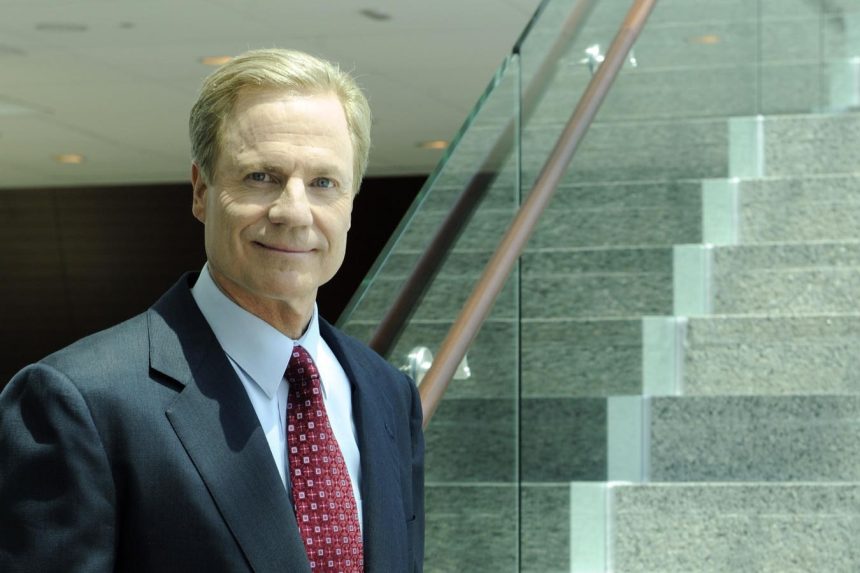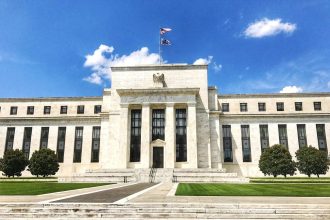If Capital One’s
COF
DFS
Based on 2023 numbers, the deal would make McClean, VA’s Capital One the largest credit card lender in the United States. Last year, it ranked fourth, making $148 billion in such loans, while Discover made $102 billion, for a combined total of $250 billion. Current top dog J.P. Morgan did $211 billion in loan volume, according to figures the would-be partners presented to investors Tuesday.
“Discover was almost irrelevant in the United States debit market, and this is going to make them really relevant,” Rodney Robinson, CEO of payment processor TabaPay, says. “I would argue that since Capital One is such a large issuer, this makes it a really competitive network with Visa and Mastercard.”
A perhaps more significant component of the merger, however, is the ownership Capital One would gain of Discover’s card network. It’s the fourth largest in the United States, but is currently overshadowed by Visa
V
MA
AXP
For Capital One, the addition of Discover’s network offers a lucrative new opportunity by allowing the issuer to collect more in fee revenue on debit card transactions. Discover and American Express distinguish themselves from Visa and Mastercard by acting as both payments networks and card issuers. This distinction makes Discover and American Express exempt from the Durbin Amendment–a federal provision named after Sen. Dick Durbin, D-Ill., who pushed it through as part of the 2010 Dodd-Frank law–which limits how much networks like Visa and Mastercard can charge merchants for processing debit card transactions. The limit does not apply to credit card transactions, though Durbin wants to extend it to cover those too—a change unlikely to get through today’s Congress. (The rationale for the current exemption for Discover and American Express is that merchants are able to negotiate fees directly with these issuers who have their own network, but not with card issuers (banks) who are on a shared network.)
According to the Federal Reserve Board, 66% of all Visa transactions, and nearly 50% of Mastercard transactions, but less than 2% of Discover network transactions are subject to the debit fee limit. The limit applies when a card issuer with more than $10 billion in assets is processing payments with a third-party network like Visa or Mastercard. Across all debit transactions, card issuers like JP MorganChase and Wells Fargo
WFC
“We have always had a belief that the Holy Grail is to be able to be an issuer with one’s own network so that one can deal directly with merchants,” said Fairbank, 73, who founded $468 billion-in-assets Capital One with Nigel Morris, now a venture capitalist, in 1995, after Signet Bank spun out its credit card division.
Having the Discover network would provide a substantial lift in fee revenue for Capital One and a profitability edge over other card issuing competitors. The gap between regulated and exempt fees stands to grow even larger if a Federal Reserve proposal released in October of last year that would lower the interchange cap even further is adopted.
The value of Discover’s debit fee cap exemption hasn’t been fully appreciated in the past, analysts suggest. “We think of them as a credit card issuer, but for several years now they’ve been marketing deposit products including virtual checking accounts with the debit card,” says Bryan Derman, managing partner at payments consulting firm Glenbrook Partners. “They have been earning money on their debit card transactions from the merchants at a much higher rate than the Durbin caps would allow.”
While Discover doesn’t carry the cachet of Visa, Mastercard or American Express, Capital One plans to maintain the brand on the cards and network, Fairbank said on Tuesday’s call. Discover is nearly universally accepted in the U.S., but its coverage falls off abroad. That’s why internationally, Capital One may continue to use Visa or Mastercard as secondary networks.
“We’re talking about taking a network that is way, way smaller than those and giving it a chance to get threshold, scale, pick up momentum,” Fairbank said of the Discover network. “Over time, we’re going to lean in and build the strength, the acceptance, the brand, and the perceived acceptance and the credibility of this network, and then keep moving volume over as we get more traction along the lines.”
Before the merger is finalized, it will have to make it through federal antitrust enforcers and banking regulators who are likely to closely scrutinize the deal, especially following a period of heightened consolidation in financial services in the wake of Silicon Valley Bank’s collapse last year. Just last month, the Consumer Financial Protection Bureau published a report highlighting how small issuer’s median interest rates on consumer loans are lower than the top 25 issuers.
Capital One has built its brand around providing credit to a wide swath of consumers from big spenders who prioritize rewards and airline lounges to underserved populations who historically struggled to gain access to credit. Its offerings range from the Platinum Card with a 30.74% variable APR to the SavorOne Card which promises 0% APR for the first 15 months then 19.99%-29.99% variable APR after that. Through Discover, Capital One stands to expand its brand reach to more middle market consumers and acquire $84 billion in consumer deposits.
“People worry about financial consolidation but this is a scale business,” says Morris, who left the bank in 2004. He’s now managing partner (and a cofounder) of QED Investors, an Alexandria, VA-based venture capital firm focused on the fintech industry. “Capital One with its sophistication, analytics and just sheer economies of scale, should be in a position where it’ll be able to pass on some of those savings to consumers.”
In addition to those profit opportunities for Capital One, Discover would bring with it some challenges, including months of turbulence preceding this announcement. Last year, the company disclosed it had accidentally misclassified merchants into its highest pricing tier resulting in years of overcharges and a $365 million liability for reimbursements. Shortly after, its CEO Roger Hochschild stepped down after five years at the helm and was replaced by current CEO Michael Rhodes. In October, the company reached a consent agreement with the FDIC over consumer compliance issues at its banking unit. At the end of last year, Discover announced it would stop accepting new student loan applications as it explored the sale of that business arm.
Read the full article here














